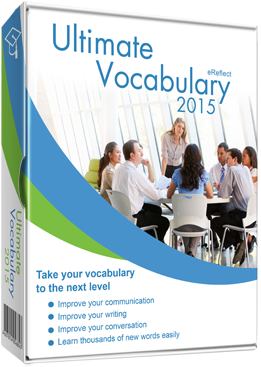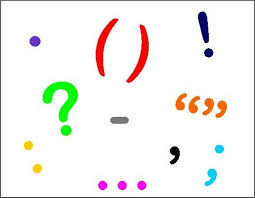You Won’t Be Happy Once You Learn About The Journey of A Plastic Bottle

"Give them the gift of words"
Ultimate Vocabulary EDU is the world's most advanced vocabulary learning system for schools. With Ultimate Vocabulary, you have your vocabulary teaching requirements completely under control.
Based on proven principles of cognitive science, Ultimate Vocabulary EDU contains all the features of Ultimate Vocabulary plus:
It's absolutely essential your students graduate with their vocabulary educational requirements met. With Ultimate Vocabulary EDU these vocabulary requirements are more than met. Students also improve academic performance, are prepared for standardized tests, and improve their confidence.
The next step is to see Ultimate Vocabulary for yourself. Simply fill out the form and we'll send you a free no obligation trial of the full version of Ultimate Vocabulary EDU.
You Won’t Be Happy Once You Learn About The Journey of A Plastic Bottle


You probably think learning a new language is a drag. I hear you – it’s just too much of an effort to learn all the new vocabulary, grammar rules and pronunciation principles, isn’t it? But the truth is, all these issues aside, learning a second language is beneficial for your brain in a multitude of ways.
A brain forever young
When you learn a second language, strange things happen to your brain. More precisely, language learning in adults is now proven to delay cognitive deterioration. In other words, your brain stays young and fit for longer.
A study published in the journal Annals of Neurology looked into how bilingualism affects people’s cognitive aging. The researchers concluded that even when the second language was mastered in adulthood, it positively affected the person’s cognitive function and fitness.
Career opportunities flourish
Knowing a second language at a proficient level gives you the chance to further expand your career prospects. It’s easier to find a job in different country if you speak their language. Just think, you can finally relocate to picturesque Barcelona, because those Spanish lessons got you that executive position at a big cosmetics company!
Travel made easier
Traveling can be a bit intimidating if the locals don’t know English and you don’t speak their language. However, if you know a key language like German, Spanish, Chinese, or French, then you can visit numerous countries and have absolutely no communication issues.
An added benefit is that you get to interact with locals and find out the best places and things to do. Knowing the language helps you immerse yourself more deeply into the culture and worldview of the country you’re visiting, making the whole journey eye-opening.
Furthermore, it’s impossible to learn a new language and stay detached from the culture it stems from. When we learn a language it comes along with the cultural background and the color palette that paints the picture of its people and their customs.
Learning a new language is more than learning a few grammar rules and colloquialisms. It’s about learning how natives of that language behave and think, what they prioritize, and what lives they lead.
A language is a window to the culture of a people, and it’s astonishing what view you get once you master it.
Self-development and self-confidence boost
You don’t need to have a reason other than self-growth to learn a new language. In a world where monoglots are becoming a minority, you should be looking for ways to become at least bilingual.
Knowing a second language makes you a confident, knowledgeable individual. Learning a second or third language is a great achievement you will be proud of. Mastering a new language is a worthwhile achievement, and doing so gives you the confidence boost you need to focus on perfecting your vocabulary, and even learning more languages along the way.
Consider learning a new language even if you think you’re past the learning age. Adults can learn a new language at any age, as studies consistently confirm. You will just be using different tools and different experiences than a child would, that’s all – but you’ll get the same benefits.
Have something to add to this story? Share it in the comments

They literally made this song about science!


Technology offers many opportunities for indirect learning. For example, blogging helps you become better at writing, especially if you’re blogging about something that interests you personally.
While you might be blogging as a hobby, writing about an exciting project, or discussing life in general, the mere act of blogging helps you practice your vocabulary and spelling, and become a better digital communicator. This benefits your writing skills and academic performance. And that’s why you should think about starting blogging now (if you aren’t already), so that you can build a broad vocabulary and get a head start in your professional and educational career.
The sooner you start, the more benefits you’ll gain. That’s why it’s a good idea for people to start blogging as soon as possible, even at an early age.
Blogging builds your vocabulary
When you blog you create stories for your readers. Sometimes you stumble upon word gaps: words you don’t know, or ideas you can’t express. You don’t know how to name an act, emotion, or idea. Don’t worry! This is actually useful, because it prompts you to actively search for the appropriate word for that context.
As you become more and more interested in blogging, you’ll incrementally build your vocabulary and become a more accurate, fluent communicator. You’ll become someone who knows how to use the right word in the right context to make the right impression.
Fun and social
Blogging is a rewarding experience. You’ll discover that while you are indirectly improving your language skills, you are also socializing and exchanging opinions with your peers and other interesting people on the web.
Independent and self-paced
While most assignment and projects at school are monitored by your instructors, and you’re accountable for them to your teachers and your team, with blogging you are self-regulating your performance.
Putting yourself in charge makes the process all the more important to you, and encourages you to devote more time and effort in this independent and self-paced activity.
Without the stress and pressure from an instructor, blogging becomes a constructive activity that lets you express yourself, and at the same time improve your vocabulary and communication skills.
Public or private
Whether or not you want your blogging available for all to see is up to you. Going public with your blogging efforts has an advantage: it encourages you to try harder, to work on writing as impeccably as humanly possible.
The mere thought of having others read what you blog about gives you the extra incentive to double check before hitting the publish button. Of course, you’ll also want to make sure your writing contributes something in terms of quality and information.
How to start blogging
You can use one of the many free tools available for creating a blog, like WordPress, Blogger, or Penzu. Pick the one that seems easiest to use.
The next step is finding an interest, hobby or passion you’re interested in (or obsessed about). It could be anything – fashion, yoga, volunteering – anything that makes you eager and engaged and ready to talk and write on the topic.
The third step is to start writing. The first time you blog, you’ll be filled with anticipation and overwhelming excitement. It might feel a bit scary when you hit publish for the first time. Just do your best and write from the heart!
If you find blogging to be an exciting opportunity to build your language skills, why not share it with your teachers and classmates?
Perhaps you could create a classroom blog where you document your progress, learning, and other exciting activities you engage in!
Have something to add to this story? Share it in the comments

10 Things Every Female Should Know:
1) You are a prayer in the most holy mouth…you are a reminder that magic exists.
2) They will stop and stare…learn to take a compliment
3) When you fall in love, let it be with a person who asks nothing of you. Your existence should be enough.
4) Keep a few great friends.
5) Buy the perfect shade of red lipstick…
6) Stop hiding your tampons, you are a women…
7) Do not apologize for existing, for being yourself. Apologize when you are not.
8) If you work hard, ask for a raise…You deserve the money that correlates to how hard you work.
9) Feed yourself kind words, chocolates, quality people, random first dates, solitude, orgasms and books. You will need really good books, live in the story of them.
10) If all else fails, repeat:
I AM ENOUGH. I AM ENOUGH. I AM MOST CERTAINLY ENOUGH!


The debate still rages, and the “Reading Wars” are fiercer than ever.
There are those who believe a phonics approach to reading is the solution – that phonics is what children understand and need when first learning to read. And then there are those on the other side, who argue in favor of the whole-language approach to reading: reading that focuses on context and word meaning.
Which is better? What should we be doing when teaching reading to our young students?
The Phonics Approach
Proponents of the phonics approach believe that when you sound out the words you’re reading it gives you the time and stimuli necessary for processing what you’re reading, which provides the basis for comprehension.
A child who uses the phonics approach to reading is expected to be very accurate in how they read and pronounce each word. Attention is given to the proper spelling, pronunciation, and usage of a word, as opposed to its meaning and contextual purpose.
In a phonics-approach classroom, students are explicitly taught the spelling and phonological rules of vocabulary, which they are then expected to apply in the ensuing practice sessions. Ultimately, the student will master the spelling/sound correspondence for words, and will then be able to attach the meaning of the word to that basic knowledge.
The phonics approach is often labeled as a bottoms-up approach. The learner starts with a deconstructed language: they’re presented with the word “cat,” for example, and are expected to break it down to its constituent parts, or rather letter-sounds (in this case, /k, æ, t/). Although this is a rigorous process in many respects, it fails to take into account how a student is to make sense of a word they can pronounce correctly but don’t know the meaning of.
The Whole-Language Approach
Proponents of literacy instruction through the whole-language approach consider phonics an integral part of the method, but certainly not its focus.
Phonics is simply part of a literacy lesson, rather than a lesson on its own. The student is expected to draw on phonics knowledge to decipher the meaning and spelling of words, is also encouraged to use context and prior knowledge to make out its meaning.
In a whole-language approach environment, the reader pays attention to meaning and comprehension first, instead of concentrating primarily on language precision and usage accuracy. What the instructor is after in this methodology is ensuring that they can equip the students with the critical skill of decoding meaning and appreciating the text, by drawing on what they already know, implementing guesswork, and taking into consideration the story’s context and other cues.
While phonics give students a strategy and repertoire for phonetically figuring out new words they encounter, the whole-language approach equips them with a much more necessary skill: that of deciphering meaning through context.
A student who has perfected the sight/sound correspondence will often still be unable to figure out the meaning of a word unless they ask the teacher for the definition, or look it up. That’s why it is important to encourage vocabulary building once phonics knowledge is in place. Ultimate Vocabulary™ helps students improve and expand their vocabulary with fun and age-appropriate activities and games that promote both underlying phonics skills and the more global comprehension that students need.
A student who is trained using the whole-language approach can more easily figure out the gist of a word based on context and prior knowledge. The student is encouraged to read in chunks and not word by word. This meaning-based strategy is effectively used in 7 Speed Reading™ because it helps children as well as adults learners to move away from the word-by-word method and improve their reading speed.
An Argument for a Balanced Approach to Teaching Reading
Phonics is not by itself enough to handle the inherent complexity of English phonology. The words “though,” “drought,” and “tough” look almost the same, but their pronunciation differs considerably.
Guessing pronunciation and/or meaning in this case will only get a student so far. The phonics approach is limited in usability if used alone. The student cannot move ahead if they stumble upon an unknown word. They might read it out loud correctly, but they won’t possibly know what it means.
People who rely solely on the whole-approach method, on the other hand, often don’t pay enough attention to phonics and how crucial it is for reading comprehension and speaking.
A balanced approach that brings the best of the whole-language and phonics approaches together seems to be the ideal solution for helping students master literacy quickly, and as painlessly as possible.
A balanced method of teaching reading considers synthetic phonics as a segment that has to be explicitly taught but not exclusively relied upon by students. The student should be encouraged to use both phonics knowledge and semantic and pragmatic knowledge to decode meaning
Cross-posted on the 7 Speed Reading blog.
Have something to add to this story? Share it in the comments

Given the chance to go back in time, what knowledge would you share with your teen self?


A strong vocabulary will take you many places. With a extensive vocabulary you will write and speak more confidently. You’ll have no trouble closing deals and negotiating successfully, which are key to many areas of business success.
One way to improve your vocabulary is with Ultimate Vocabulary™. This program has been designed by experts to optimize your learning experience. As a result, you’ll be able to improve your vocabulary in a way that’s thorough, fun, and fast. You don’t need to spend hours on end slogging through activities that are counterproductive and time-consuming.
The program is an all-in-one solution for creating a robust, rich vocabulary you can accurately and efficiently use every day. But don’t take our word for it. Here’s what independent organizations have said about the Ultimate Vocabulary™ system.
Boosts Your Career
The experts at Powerful English Lessons believe that Ultimate Vocabulary is a quality program which helps you get a head start in your career. With fun games and lessons, learning new vocabulary feels more like play than hard work.
The program is so well-designed that it only takes 10 minutes a day of practice, for just one month, to get measurable, substantial results, as they confirm.
Helps You Write Better
Apart from improving your career prospects, the program does a good job at improving writing skills. With more words available to be used, the more concepts, ideas, and plots you can produce, as the Powerful English Lessons team emphasizes.
Not only does a professional-grade vocabulary provide you with more mental tools to begin with, you will also be able to write with greater precision and flair. This translates to more compelling content whether you’re a college student, a marketer, a journalist, or a salesperson.
Promotes Respect and Authority
People that have a rich vocabulary come across as erudite and wise. They always speak with greater accuracy and assurance, and this is something that promotes respect and trust in others.
People with good vocabulary skills are seen as hard-working and well-educated. This perception is something that provides a range of benefits, from improving your credibility as a professional to increasing your authority and attracting more customers to your business.
Improves Literacy, Helps ESL Students Succeed at High-Stakes Exams
IELTS Buddy, a website dedicated to learners of English who are focused on studying for the IELTS, highlights that Ultimate Vocabulary is the go-to solution for improving vocabulary quickly and easily.
When you use Ultimate Vocabulary, you will get to improve your vocabulary and also learn how to use those words correctly, which is an essential prerequisite for scoring well on the IELTS, GMAT, GRE, and other high-stakes exams.
Provides a Diverse and Flexible Tool
The program is an all-in-one solution for improving your communication skills. It can be used by young English-speaking students and ESL learners, professional journalists, writers, and marketing professionals, all with the same ease.
Its 142,647 word database make it the best choice for improving vocabulary, and the wide range of activities and games mean that you’ll be learning in a way that’s enjoyable and efficient. Vocabulary.co.il says of the program,
“We recommend Ultimate Vocabulary as the best vocabulary software on the market today: It is visually appealing, has a solid word database and offers an advanced learning framework with extensive usage examples and testing methods. We rate this program as an advanced educational software tool that is exceptional value for money.”
There you have it – five reasons why you should practice with Ultimate Vocabulary if you want a richer vocabulary.
Have something to add to this story? Share it in the comments


Say you’re writing about unicorns and dragons. How do you compel a reader to stay on the page or click on the image to read the blog, if they’re not the sort of person who automatically clicks through to fantasy fiction sites? Yes, a relevant, high quality image could pique their interest, but is it enough? To hook any reader, you need to create an irresistible headline.
The word “irresistible: has several definitions. Here are two, both of which apply to your headline-crafting task:
Irresistible = Compelling
A headline needs to shock your reader (in a good way) or otherwise take your reader by surprise.
There’s so much saturation in online content that unless your headline shocks or draws the reader’s attention with something nonsensical or whimsical or intriguing, you will have a hard time trying to hook them.
You need to be careful, though. The headline needs to grab the reader’s attention, but it needs to also make sense both in and out of context. Many people won’t read the headline on your blog – they’re more likely to come across it on Facebook, Pinterest, or an RSS Feed. So the headline needs to be compelling, and it needs to make sense as a stand-alone sentence.
Irresistible = Accurate
Ever read a blog that didn’t even answer the question posed in the headline? A disappointed reader is one who won’t want to click on your future headlines if each and every one doesn’t live up to its promise.
How many times have you found nothing but disappointment and betrayal of your trust in a blog post that promised to tell you how to be rich without having to leave your house again, only to realize the actual blog content was completely irrelevant and was trying to sell you a new product?
You must respect your readers. Don’t promise things you cannot offer them. Be as accurate as possible. Yes, a factual discrepancy could happen, and mistakes are only human. But don’t consciously write misleading headlines for the sake of hooking your readers. They will eventually become disappointed with you and never read your blog again.
Opt for accuracy and professionalism and you will be rewarded.
– Here are a few extra takeaways to keep in mind when writing the perfect headline:
– Keep it short. Any headline longer than 6 words is generally too long for online readers.
– “You” headlines grab the readers and never let them go. Not really, but you get the point. A “You” or “Your” headline instantly hooks the reader because the reader is referenced in it. They’ll immediately think, “Hey, that’s me, and yes, I do want to know how to cook pasta!”
– Tap into readers’ insecurities. Using words like “stop” or “wrong” or “bad” or “don’t” makes readers wonder if they should be doing something differently. “Are you going on a road trip without these basic supplies? It could be dangerous.” Bam! Hooked.
– Ask a question. “Why” and “How” headlines pique the readers’ curiosity because more often than not, people desperately want to master everything.
– A list headline works well with readers too. In fact, listicles are widely shareable because there’s something irresistible about having “10 ways to wear your peplum blouse this summer.”
Have something to add to this story? Share it in the comments


Have you ever felt that a person texting you the message “OK.” with a period at the end might be angry at you for some reason? Ever felt that exclamation marks are like these happy-go-lucky fellas who are warm and amiable? We hear you.
Words are not the only things that carry emotion, state of mind, and mood. Punctuation marks are rich in conveying emotion and mood. In fact, on many occasions, punctuation marks can actually cancel out the very meaning a word might denote. For instance, consider how the statement “I’m fine.” is often interpreted to mean that the person is not happy, and not fine at all.. Used in this way, the period cancels out the very meaning of the sentence.
The austere, angry period
A full stop (a period) is the conventional, grammatically correct way to end a sentence. However, in the digital age of texting and emailing where instant communication on smartphones and tablets is the norm, it seems that when the period is used to end a sentence, this somehow unsettles the recipient.
The period is angry and looks way too serious. People using it in texts are more often than not aware of the period’s power to denote anger, frustration, disappointment, and a range of other negative emotions.
Texting and online chatting provide many examples of how the period is generally omitted in normal conversation. So unless you’re new to digital communication or angry at someone, using the full stop may communicate to the other person that something’s not quite as good as you say it is.
So, if you’re responding to an invitation to go out for drinks with, “Sure, that sounds great. I’d love to join you guys.” it might be seen as a reluctance to actually go out with that group of people. While grammatically correct, it’s emotionally incorrect.
The amiable exclamation mark and the … capricious … ellipsis
The period is not the only punctuation mark with a rich emotional side. For many people, the exclamation mark comes across as the nice guy in the punctuation family. While it can definitely be used to add emphasis to both positive and negative statements, these days it’s more often used in a sentence to indicate the sender is positive, warm, and even more sincere. It shows an excitement and benevolence that the angry, grumpy period conspicuously lacks. To prove this, here’s the same text from above, with one important change: “Sure, that sounds great! I’d love to join you guys!”
The notoriously unpredictable ellipsis wears many hats.
In digital communication, an ellipsis can mean a number of things. These three dots resting one next to the other can indicate a statement or provide innuendo. It’s up to the recipient’s interpretation, really. If you send out a message to someone inviting them to join you for drinks, and you get back the message “I’m tired …” then what are you going to think? Is the person saying they’re physically tired? Mentally and emotionally exhausted? Completely fed up with going out for drinks? You’ll probably text back for more clarification.
Are you aware of punctuation marks’ secret, rich life of emotion? How do you use punctuation marks to convey meaning?
Have something to add to this story? Share it in the comments
